Julie Farrell
Illustration by Ida Henrich
When speaking up about my health conditions I’ve been astounded by how often I come across the attitude: ‘you’re not the only one who’s suffering you know.’ On the more positive side, there have been many occasions where someone has opened up in return about their own condition, or that of someone they know, and a conversation then follows which is mutually freeing and comforting – a community is built. But I’m not talking about that here. Here, I’m talking about people literally measuring their pain against mine. It’s emotionally crippling to open yourself up and then be shut down by a plethora of shit someone else has had to deal with — and not in an offering of solidarity.
I was lost for words when, after opening up to colleagues about my health, one of them later cornered me to say she was, ‘glad I could be open’ , then promptly proceeded to tell me I shouldn’t ever have hidden it, because, ‘everyone’s got shit going on’, and therefore would absolutely be able to relate. She then elaborated; telling me how she lost her best friend in a tragic accident as a teen, and — understandably — how she found it incredibly traumatic. But, she informed me, she ‘just had to cope with it’. Because ‘that’s life’.
As a society I find we are unrelenting with an attitude of, ‘you think you’ve got shit to deal with? Try this’…
I am full of sympathy for her. But she belittled my illness, comparing our very different pains, whilst finding it appropriate to chastise me for not sharing sooner. Living with a chronic illness is not the same as living with the pain of losing a loved one. How could it possibly be? As a society I find we are unrelenting with an attitude of, ‘you think you’ve got shit to deal with? Try this’. It’s a useless comparison of very different pains; it’s absurd to think I could comprehend someone else’s pain, I would not insult them by trying. And it is wrong of people to assume their pain correlates tightly with our own. I see it time and time again, however, and in my experience it’s particularly a problem between women. All too often, our pain is a badge of honour; a sign of our strength. Living with chronic pain, emotional pain, loss, grief — all of these things take an enormous amount of strength, there’s no denying that. But it’s how we carry it that matters, surely? Some women behave as if they own this pain, as if other people’s suffering somehow detracts from their own very real experiences, building a toxic barrier of comparisons only serving to divide sufferers instead of uniting them in the most vital of communities.
We need to accept that pain — any pain — requires support and kindness, not a drawing of comparisons. We can never know anyone’s pain but our own and so the last thing we should be doing is making judgements of someone else’s experiences.
The media perpetuates a sugar-coated stigma towards chronic and mental illness which only encourages a ‘get over it’ attitude. Just a quick search on Google reveals a plethora of websites dedicated to shouting about recovery: ‘We want to hear your recovery stories!’ Or, ‘how I ate my way out of pain!’, and, ‘I meditated my way out of my mental health issue’. But do we ever really fully ‘recover’ or do we just learn how to manage, how to cope better? Evangelising, quick-fix articles and websites are running a dangerous agenda which is damaging to those sufferers who have a lifelong, chronic condition, for whom ‘recover’ simply isn’t an option. The word recovery is in itself, a questionable term. These ‘recovered’ people often face a very real possibility of relapsing. Illness without recovery is a very real situation for millions of people and the glorified worship of the ‘recovered’ carries the heavy implication that if we don’t recover, we’re not equally brave, virtuous, valid or hopeful as those who do.
Illness without recovery is a very real situation for millions of people and the glorified worship of the ‘recovered’ carries the heavy implication that if we don’t recover, we’re not equally brave, virtuous, valid or hopeful as those who do.
Maybe if we all just ate a little better, tried a little harder, we would recover – and we’d have an amazing story to tell; a survival story of the most compelling kind in which we are the celebrated hero.
But here’s the crux — in my experience, those who suffer a chronic illness are trying their best already, every day, to just get by. I’ve changed my diet and lifestyle beyond recognition since my diagnosis of fibromyalgia, chronic fatigue and generalised anxiety disorder and I’m still sick. I know many other people in the same position. And yet, we find ourselves being advised, in nuance and overtly, by these stories in the media on a daily basis. Friends send us links to magic cures, our colleagues are full of helpful suggestions of, ‘have you tried…?’ and all of these things are meant with the best intentions, but they also undermine that very fact that we are chronically ill.
So no, some of us are not recovering — we are surviving. We are the ones who are still battling these conditions — mental or physical — day in, day out.
We are the fucking heroes — and it’s time we started celebrating that.
Julie Farrell
Julie is a disabled writer living in Edinburgh in the UK. She writes creative non-fiction with a mental health and disability slant, and she is in the beta stage with her first novel, Fractal: an own-voice, contemporary YA; about love, mental illness and self-discovery. She was selected as a runner-up for the Jericho-Marjacq Bursary for under-represented voices; and has been awarded a sponsorship for the Breakthrough Writers Bootcamp, for her novel. Julie worked as a marketing executive in the publishing industry, before deciding to focus solely on her writing. She has been published in various magazines and you can find more of her writing here. You can also find her on Twitter @weeredwriter


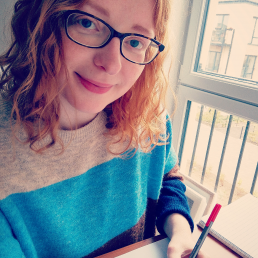
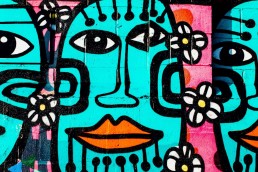

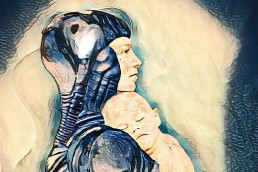
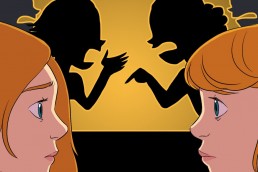

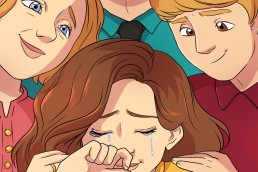
So get you! Mental ill health is already a lot to deal with without comparisons going on – I wrote a wee memoir and it is interesting what you say about recovery : I said I felt like it was a myth….so bad was the depression. Great article!!